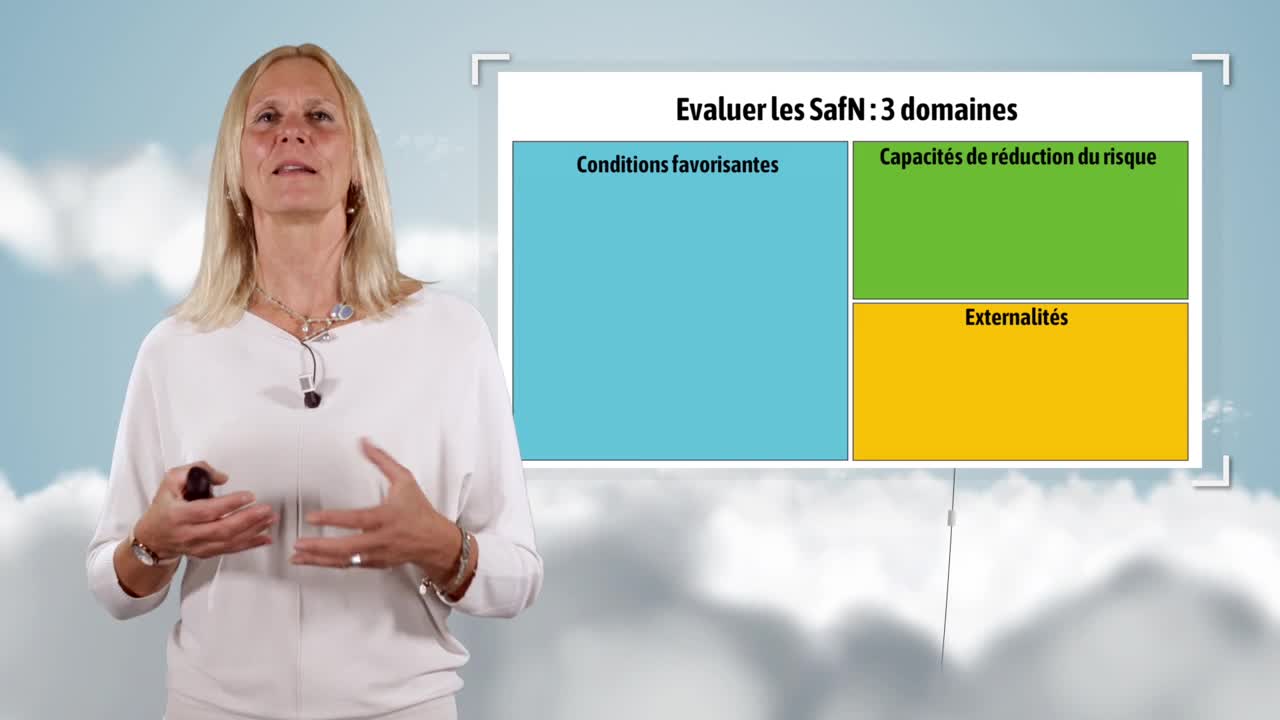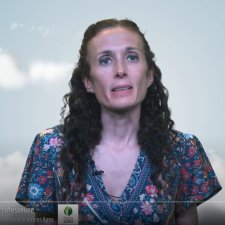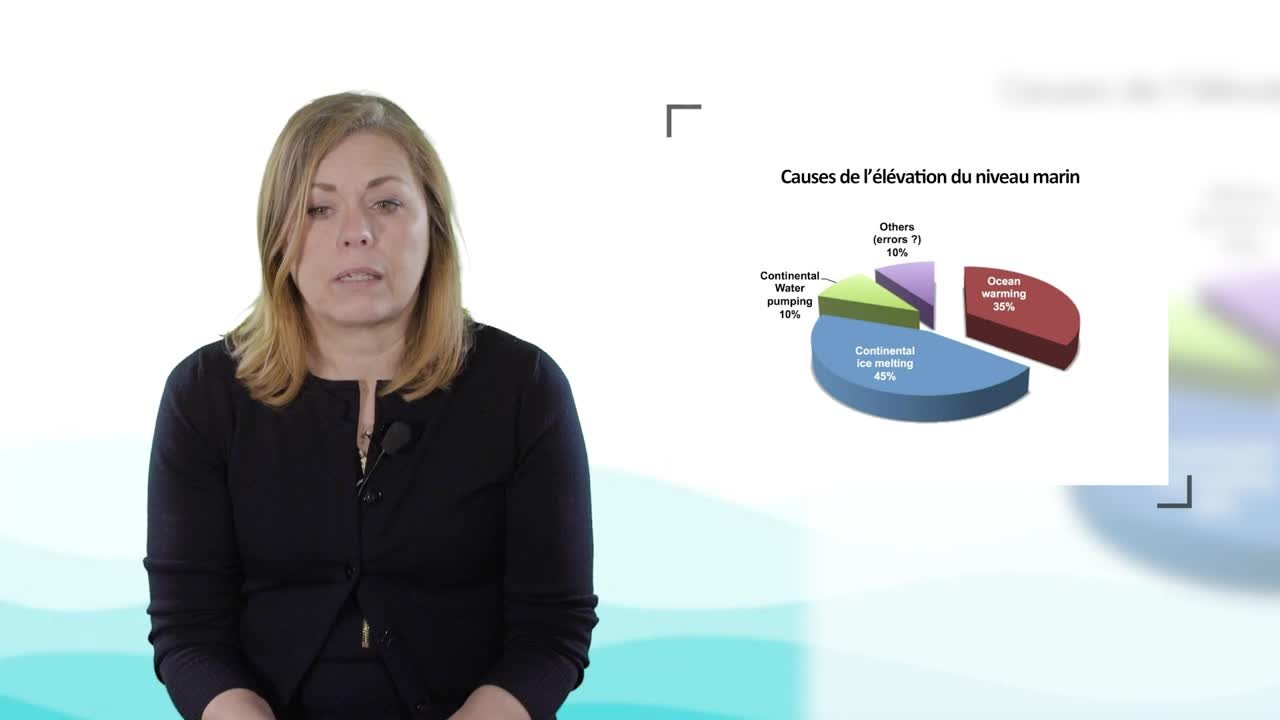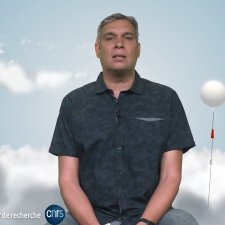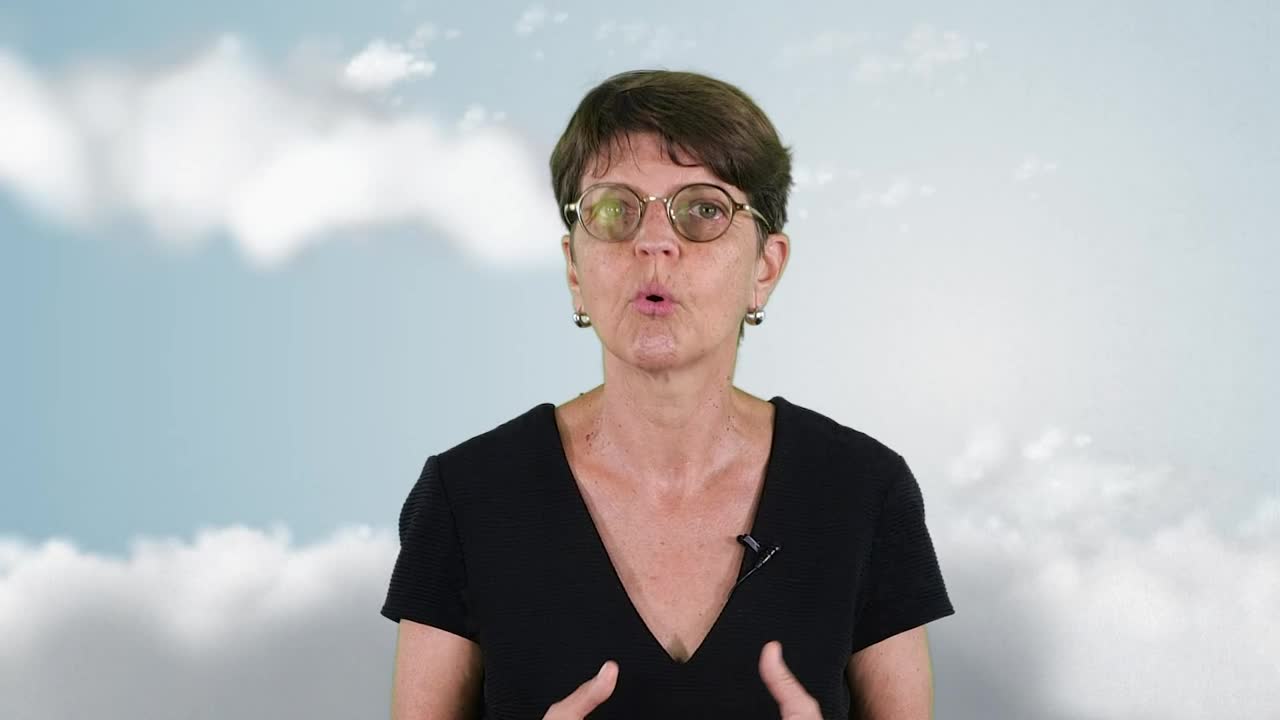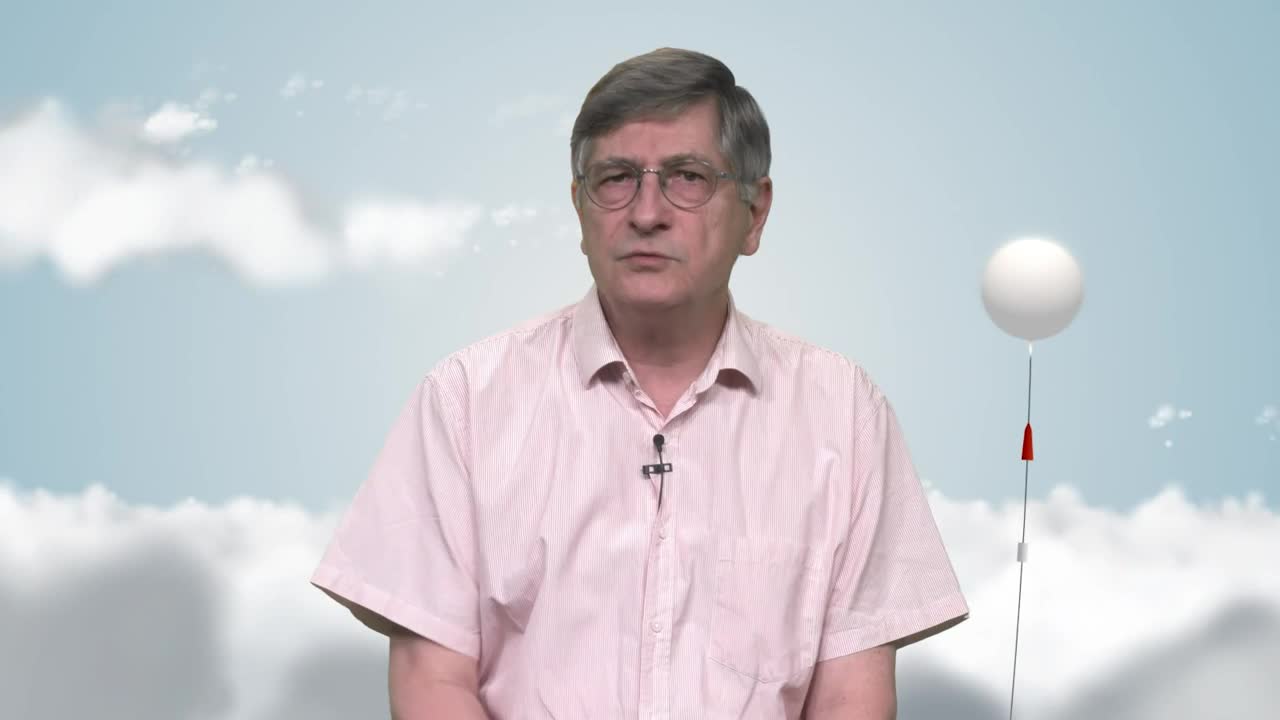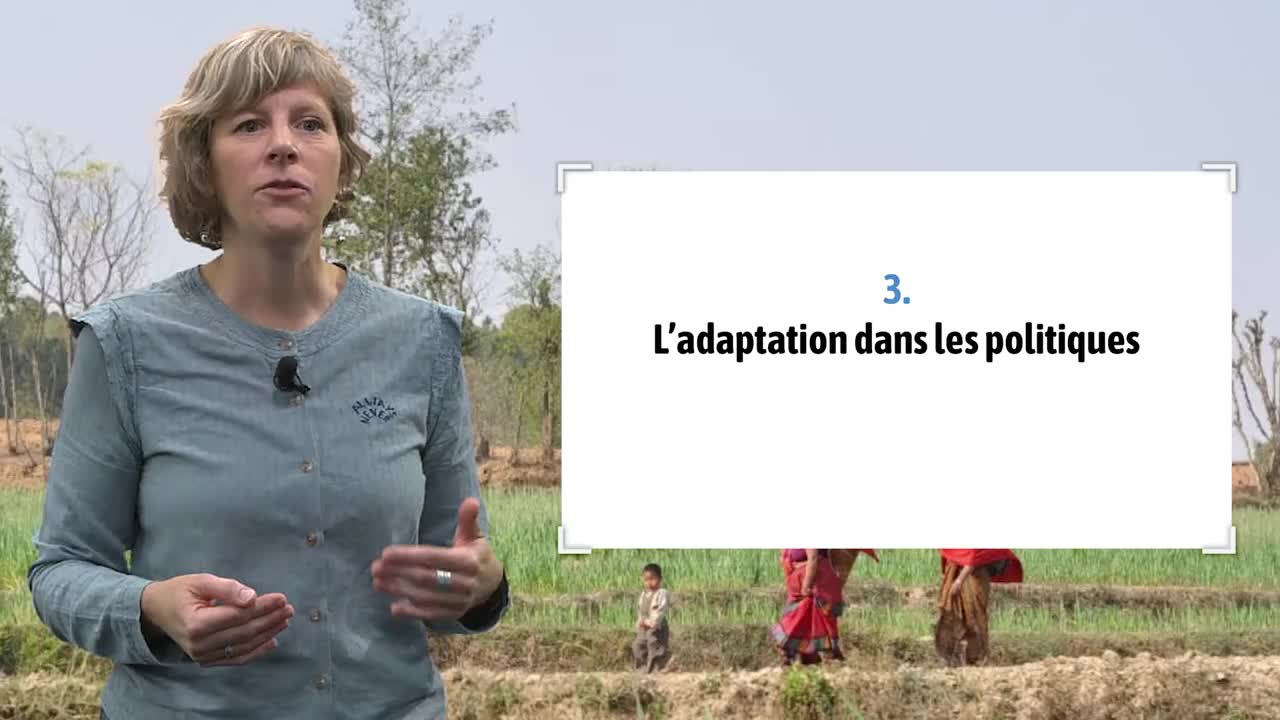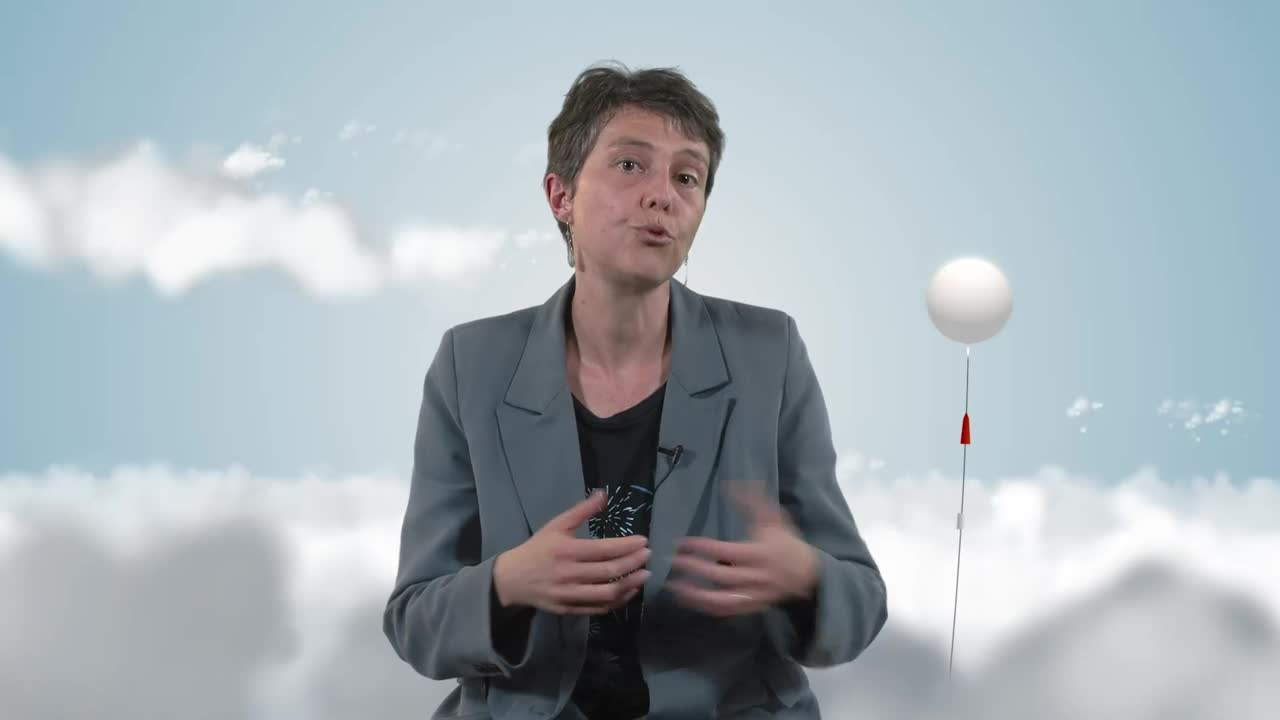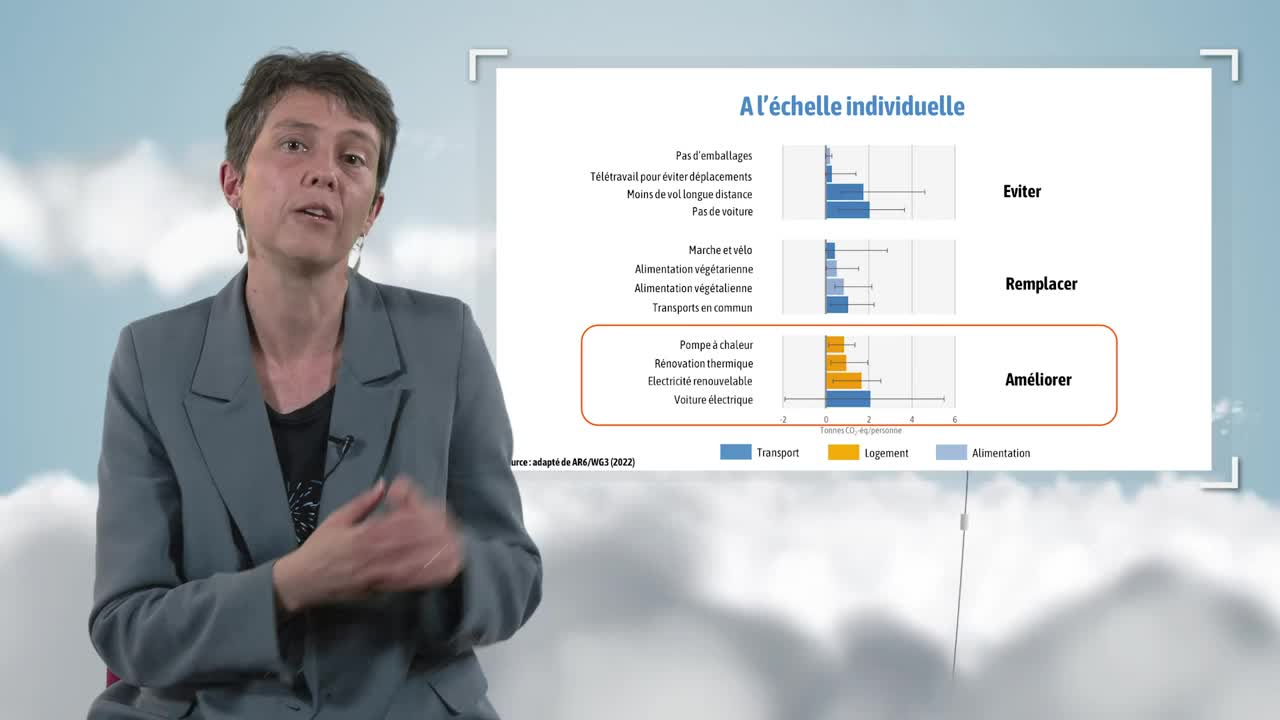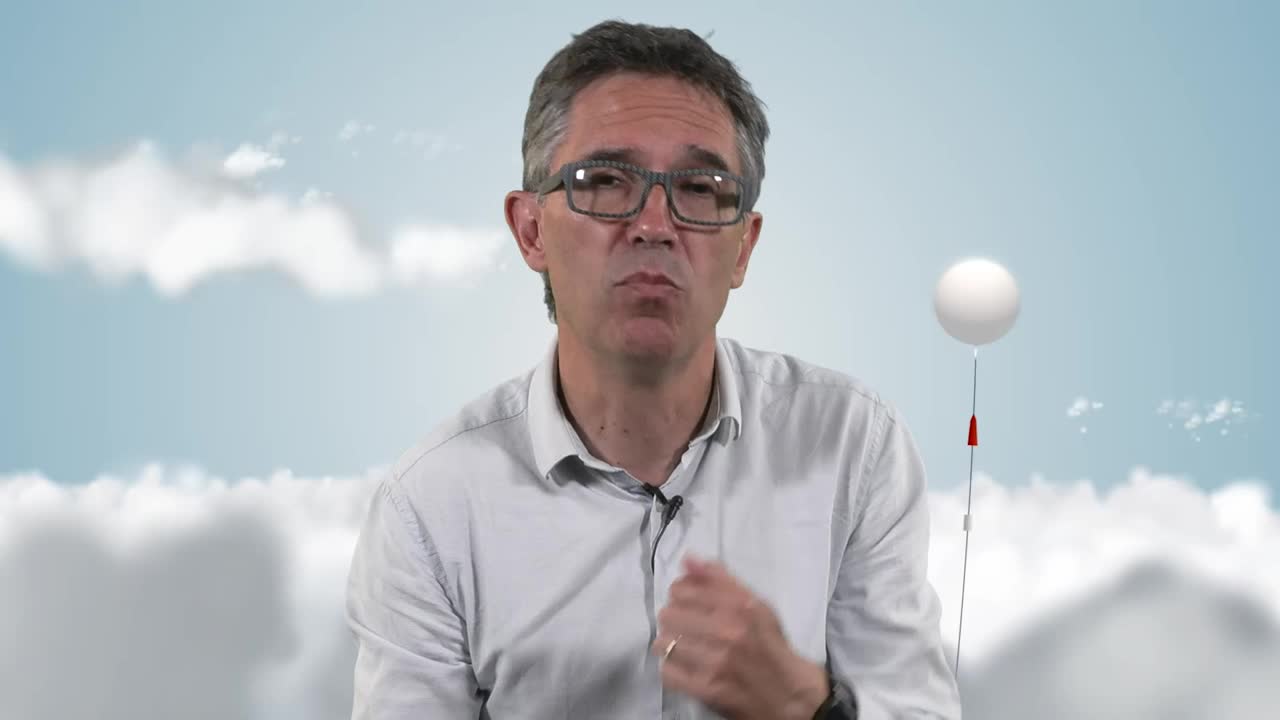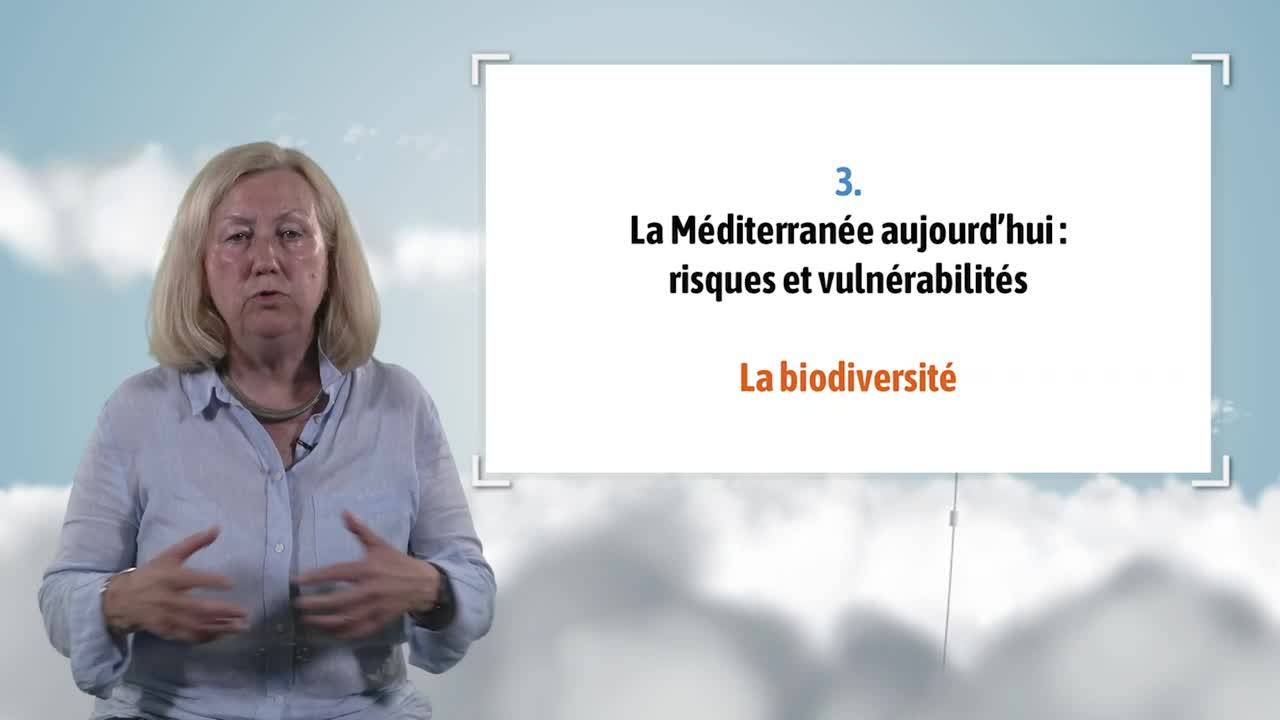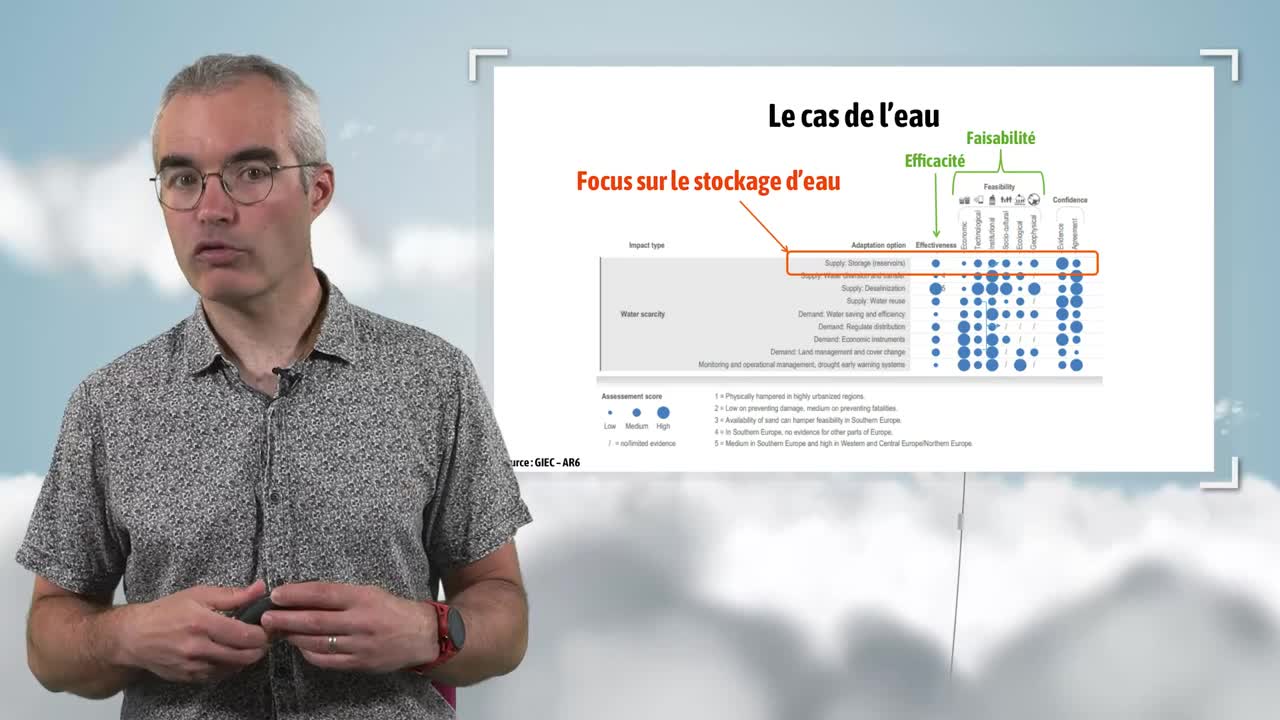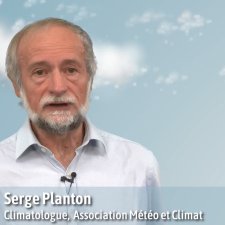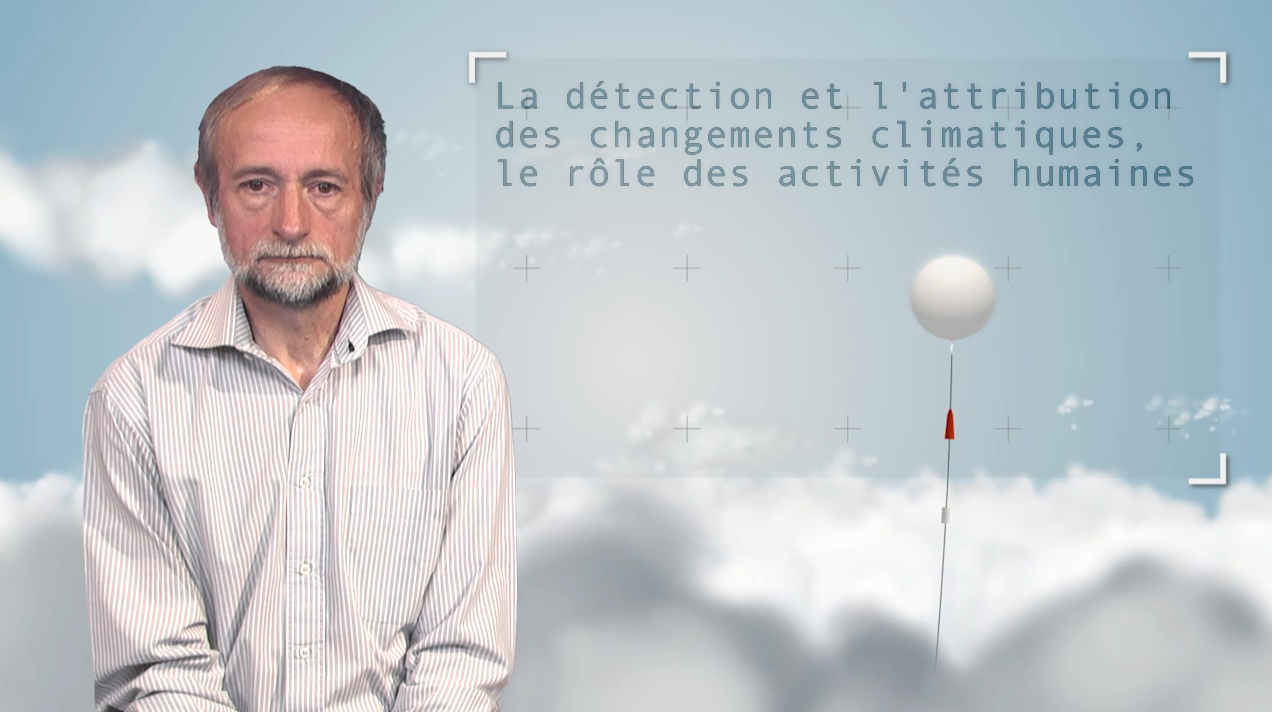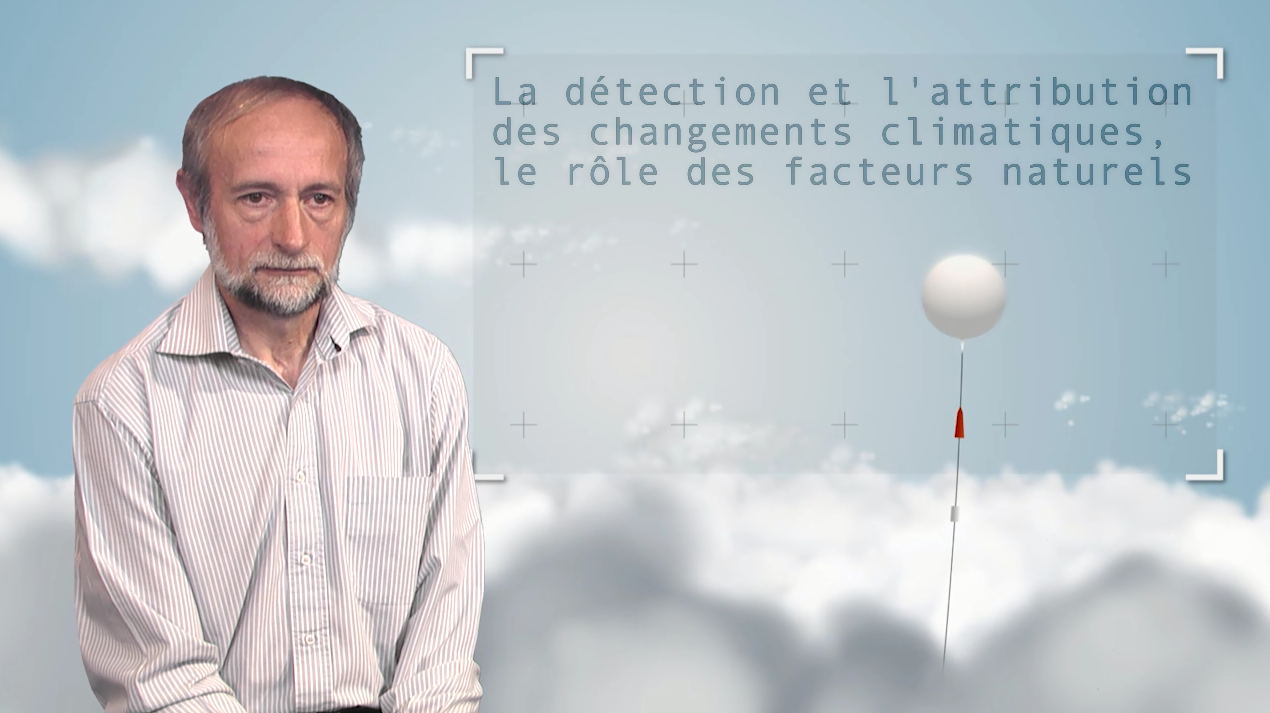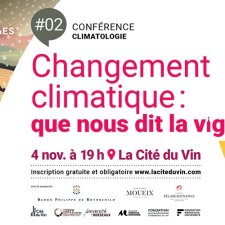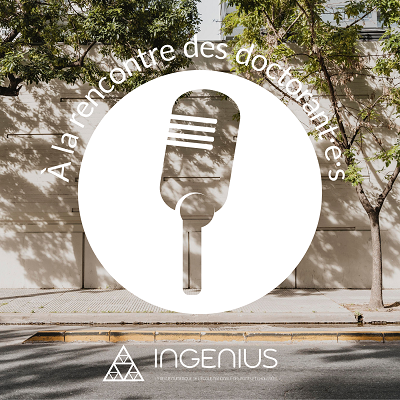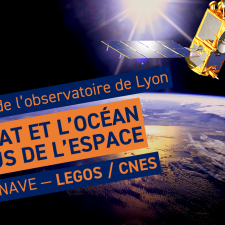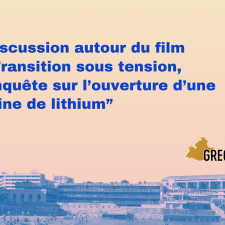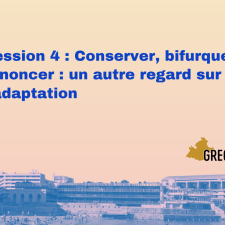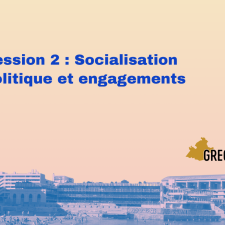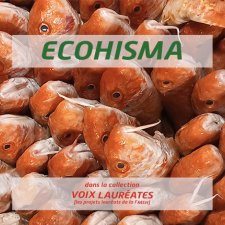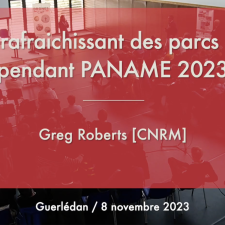Notice
Climate observations
- document 1 document 2 document 3
- niveau 1 niveau 2 niveau 3
Descriptif
Serge Planton, a climatologist and member of the Météo et Climat association, explains the difference between the weather and the climate in this video.
He then highlights the diversity in the variables used to observe the climate, and then continues by showing how climate series are reconstructed over time. He finishes by presenting the average global temperature on the world surface over the last two thousand years.
Thème
Dans la même collection
-
Nature-based climate change adaptation solutions in French overseas departments
DuvatVirginieVirginie Duvat, a professor at La Rochelle University, looks at Nature-based Solutions (NbS) in this video.
-
Mixed farming and climate change
Ellies-OuryMarie-PierreMarie-Pierre Ellies, a professor at Bordeaux Sciences Agro, discusses the changes taking place in mixed crop and livestock farming areas in the context of climate change in this video.
-
The ocean and the climate
SpeichSabrinaSabrina Speich, a professor at the École Normale Supérieure - PSL, talks to us about the relationships between the ocean and the climate in this video.
-
Coastal areas and climate change
CastelleBrunoBruno Castelle, a CNRS research director, discusses the adaptation of coastal areas to climate change in this video.
-
Mountain tourism in the face of climate change
George-MarcelpoilEmmanuelleEmmanuelle George, a researcher at the INRAE, looks at the changes in activity in French ski resorts in the context of climate change in this video.
-
Urban areas and climate change
CompagnonDanielDaniel Compagnon, a professor at Sciences Po Bordeaux, looks at the multiple challenges caused by climate change on urban environments in this video.
-
Adaptation to climate change: an introduction
SchipperE. Lisa F.Lisa Schipper, a professor at the University of Bonn (Germany), looks at adaptation to climate change in this video.
-
Climate change mitigation
GuivarchCélineCéline Guivarch, a professor at the École des Ponts ParisTech, explains what mitigation is in relation to climate change in this video.
-
Climate change mitigation through demand
GuivarchCélineCéline Guivarch, a professor at the École des Ponts ParisTech, explains what demand-side mitigation is in relation to climate change in this video.
-
Climate change: a reality in Normandy
LaignelBenoîtBenoît Laignel, a professor at the University of Rouen Normandie, presents the work of the Normandy IPCC in this vide.
-
Climate change in the Mediterranean
ThiébaultStéphanieStéphanie Thiébault, a CNRS research director, discusses Mediterranean climate change in this video.
-
Climate change in Europe
Le CozannetGonériGonéri Le Cozannet, a researcher at the BRGM, discusses European climate change in this video.
Avec les mêmes intervenants et intervenantes
-
L'observation du climat
PlantonSergeSerge Planton, climatologue et membre de l'association Météo et Climat, explique dans cette vidéo ce qu’est la différence entre la météo et le climat.
-
EN-7. Detection and causes of the climate change: the role played by human factors
PlantonSergeSerge Planton focuses on the climate evolution during the 160 last years. Thanks to simulations, he highlights the responsibility of human activities on the observed warming.
-
EN-6. Detection and causes of the climate change: the role played by natural factors
PlantonSergeSerge Planton talks about the natural sources of climate variability, like the "internal" climate variability, volcanism or the energy transmitted by the Sun. He compares these natural factors with
-
6. La détection et l'attribution des changements climatiques, le rôle des facteurs naturels
PlantonSergeDans cette vidéo, Serge Planton discute des sources naturelles de variabilité du climat, comme la variabilité "interne" du climat, le volcanisme ou encore l'énergie transmise par le Soleil. Il met en
-
7. La détection et l'attribution des changements climatiques, le rôle des activités humaines
PlantonSergeDans cette vidéo, Serge Planton se focalise sur l'évolution du climat au cours des 160 dernières années. Il met en évidence, à l'aide de simulations, la responsabilité des activités humaines dans le
Sur le même thème
-
COP30 Climat au Brésil : Que faut-il en retenir et quelles conséquences pour la recherche française…
DouniasEdmondBarbierNicolasDerroireGéraldineDurieuxLaurentLa récente COP Climat au Brésil était aussi une « COP des forêts ». Quatre participants à la caravane Iaraçu et à la COP témoigneront du déroulé et des retombées.
-
2 - Les Vendanges du Savoir - Changement climatique : que nous dit la vigne ?
Garcia de Cortazar AtauriIñakiChangement climatique : que nous dit la vigne ? Comprendre pour adapter l’agriculture de demain
-
Adapter les villes à un climat qui se réchauffe
MigliariMatteoComment adapter les villes face à un climat qui se réchauffe pour garantir leur vivabilité ? C'est la question centrale que s'est posée Matteo Migliari durant ses années de thèse, réalisée entre le
-
Conférence FORTRAN - Les extrêmes climatiques le long de la TRajectoire d’Adaptation au Changement …
CassouChristopheConférence FORTRAN - Les extrêmes climatiques le long de la TRajectoire d’Adaptation au Changement climatique en France
-
Changement climatique, fonte des glaces, réchauffement et hausse de l'océan : le rôle de l'observat…
CazenaveAnnyIl est à présent bien établi que les activités humaines sont la cause du changement climatique observé de nos jours. L'apport de l'observation spatiale, à l'aide de satellites en orbite autour de la
-
Discussion autour du film "Transition sous tension, enquête sur l’ouverture d’une mine de lithium"
RamirezVioletaDiscussion avec la réalisatrice et anthropologue Violeta Ramirez, après la projection de son film "Transition sous tension, enquête sur l’ouverture d’une mine de lithium".
-
Conserver, bifurquer, renoncer : un autre regard sur l’adaptation
DurandStéphaneChambruMikaëlUne session qui aborde à la fois les notions d'atténuation des conséquences des gaz à effet de serre et d'adaptation aux nouvelles conditions climatiques à travers les interventions d'un historien et
-
Socialisation politique et engagements : quels projets de transformation sociale dans les mouvement…
LardeuxLaurentUne session dédiée à la place des mobilisations collectives et des modes de remises en cause des choix qui sont opérés dans les politiques publiques du climat.
-
ECOHISMA Eco-histoire de la conservation marine au Maghreb : discours, pratiques et savoirs, XIXe-X…
VermerenHugoProjet lauréat 2024 de l'appel "Réseaux internationaux en SHS - Climat et Environnement" : Le réseau ECOHISMA « Eco-histoire de la conservation marine au Maghreb » a pour objectif de développer une
-
La solution au changement climatique est-elle dans l'espace ?
SanterneAlexandreAlors que les conséquences du changement climatique sont de plus en plus visibles, la question se pose de trouver des solutions dans l'espace.
-
Sommes-nous trop nombreux sur Terre ?
GastineauBénédicteGolazValérieLa population mondiale devrait atteindre son maximum avant 2100. La croissance démographique contribue-t-elle aux changements climatiques ?
-
Effet rafraichissant des parcs - Journées Drones et Cap' 2023
RobertsGregEn juillet 2023, une grande campagne expérimentale de recherche (PANAME2023), a eu lieu pour étudier la météorologie de l’agglomération parisienne, en particulier l’îlot de chaleur urbain...


